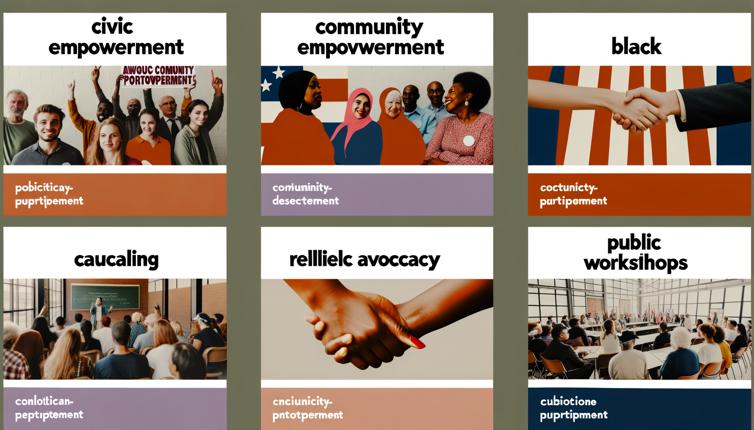Policy Decisions and Community Well-being
One of the key areas where political choices have a significant impact is on community well-being. Policies related to healthcare, education, housing, and social services directly affect the quality of life for individuals in various communities.,For example, healthcare policies determine access to essential medical services, affordability of medications, and the overall well-being of a population. A government's decision to invest in improving healthcare infrastructure and providing universal healthcare coverage can significantly improve the health outcomes of its citizens.,Similarly, education policies play a crucial role in shaping the future of communities. Access to quality education, equitable funding for schools, and inclusive policies for marginalized groups can contribute to a more educated and empowered society.,Housing policies also have implications for community well-being. Affordable housing programs, urban planning decisions, and policies addressing homelessness can determine the stability and livability of communities.,It is essential for policymakers to consider the diverse needs of different communities when making policy decisions. By understanding the unique challenges faced by marginalized groups and ensuring their inclusion in decision-making processes, governments can strive towards creating more equitable and thriving communities.
Impact on Socioeconomic Disparities
Political choices can either perpetuate or alleviate socioeconomic disparities within a society. Economic policies, taxation systems, and social welfare programs all influence the distribution of wealth and resources.,For instance, progressive tax policies that tax higher incomes at a greater rate can help address income inequality by redistributing resources to disadvantaged communities. On the other hand, regressive tax systems can exacerbate disparities by placing a burden on low-income individuals.,Social welfare programs, such as unemployment benefits, affordable housing initiatives, and food assistance, can provide a safety net for vulnerable populations. These policies can help mitigate the impact of economic downturns and provide support to those in need.,However, the implementation and effectiveness of social welfare programs can vary significantly across different communities. Political choices that prioritize the needs of marginalized groups and address systemic barriers can contribute to reducing socioeconomic disparities.,By examining the impact of policy decisions on socioeconomic disparities, individuals can advocate for equitable policies and hold governments accountable for creating a more just society.
Policy Choices and Environmental Impact
Political choices also have far-reaching consequences on the environment and sustainability. Policies related to energy, transportation, and natural resource management play a significant role in mitigating climate change and preserving ecosystems.,For example, decisions regarding renewable energy subsidies, carbon pricing mechanisms, and regulations on emissions can shape the transition towards a greener economy. Governments that prioritize sustainable energy sources and invest in infrastructure for clean transportation contribute to global efforts to combat climate change.,Similarly, policies for natural resource management, such as regulations on deforestation, wildlife protection, and water management, are crucial for preserving biodiversity and ecosystems. Political choices that prioritize conservation and sustainable practices can help maintain the planet's natural resources for future generations.,Understanding the environmental impact of policy decisions is essential for individuals and communities to advocate for sustainable practices and hold governments accountable for their actions.
Conclusion
Political choices have far-reaching consequences that shape the lives of individuals and communities. By understanding the impact of policy decisions on different communities and issues, individuals can actively participate in the political process, advocate for their needs, and hold governments accountable. It is crucial to engage in critical analysis, promote empathy, and strive for inclusive and equitable policies that address the diverse needs of society.









